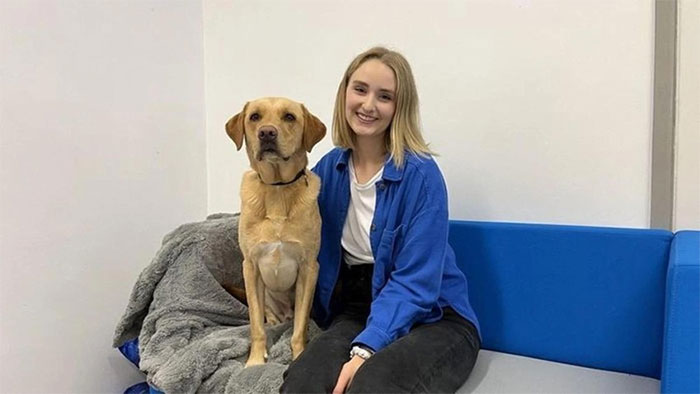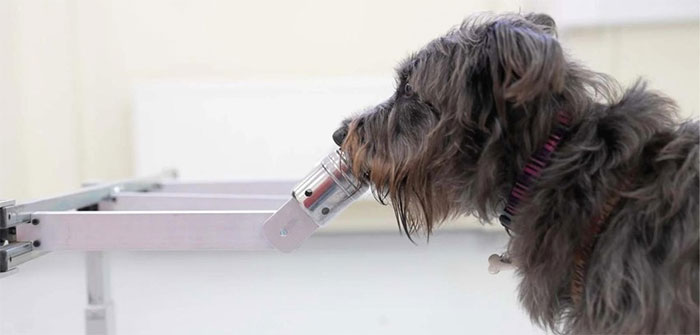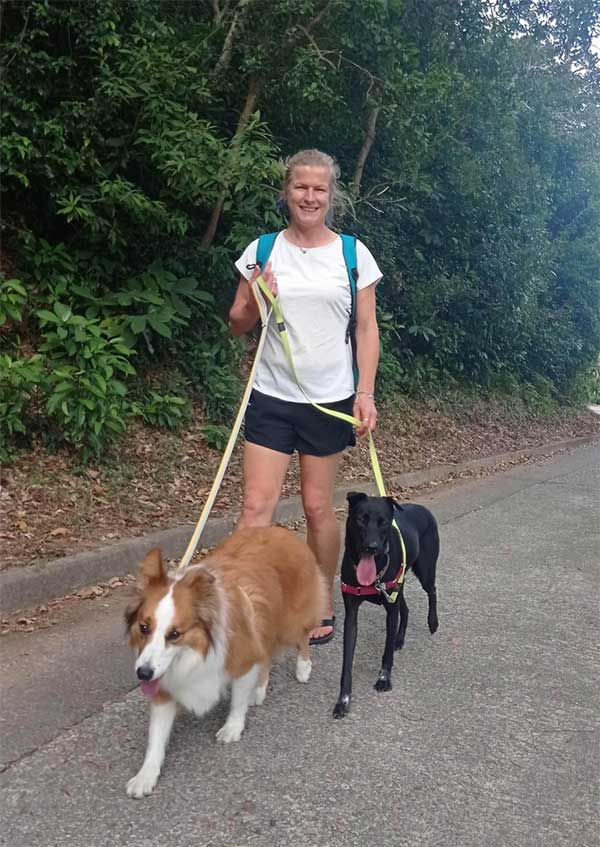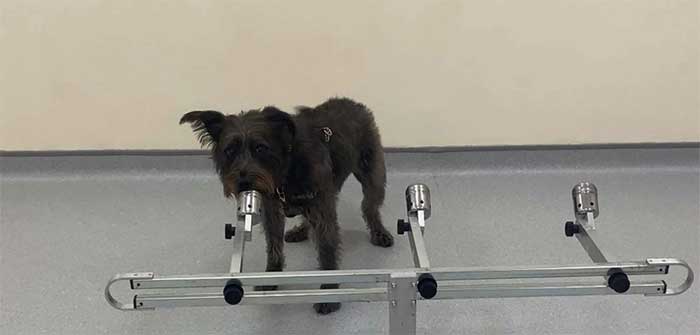According to experts, thanks to their acute sense of smell, dogs can determine both the psychological and physiological states of humans and can detect when a person is stressed through their breath and sweat.
The South China Morning Post reported on November 23, citing Deborah Debes, a pet psychology expert and dog trainer, who stated that dogs have such a strong sense of smell that they can tell when their owner is feeling pressure or fear.
Dogs’ Sense of Smell is Thousands of Times More Sensitive Than Humans’
According to Debes, a dog’s nose is thousands of times more sensitive than a human’s, with over 300 million scent receptors compared to 5 to 6 million in humans. The area of the brain related to smell in dogs is also 40 times larger than that in humans.
Understanding the sensitivity of a dog’s sense of smell (a “superpower” that humans have harnessed to detect drugs, ivory, weapons, missing persons, and human remains), animal psychologist Dr. Clara Wilson from Queen’s University Belfast led a study on the ability of dogs to detect human stress.

Dr. Clara Wilson with dog Leon. (Photo: SCMP)
“Dogs can sniff out health conditions in humans such as cancer, Parkinson’s disease, or Covid-19. They can also detect scents when we are injured and will try to lick the area to help heal the wound,” Wilson said.
The research conducted by Dr. Wilson’s team showed that dogs can identify both psychological and physiological states and can sense when a person is stressed through their breath and sweat due to changes in organic compounds.
“New findings show that humans emit different scents through sweat and breath when stressed, and dogs can distinguish this from the scent of a relaxed human, even if it is someone they do not know,” Wilson explained.

Soot, one of the dogs Dr. Wilson works with. (Photo: SCMP)
Agreeing with the findings from Dr. Wilson, Debes noted: “Dogs do not need visual or auditory signals to recognize human stress; they only require chemical signals from body odors.”
Furthermore, she stated that dogs can detect not only fear but can also identify chemical signals when a person with epilepsy is about to have a seizure and may react by barking as a warning.
“Dogs can also detect when a diabetic’s blood sugar drops suddenly. They can sense the rise or fall of their owner’s blood sugar and alert them through attention-seeking behaviors,” Dr. Wilson added.

Pet psychology expert and dog trainer Deborah Debes. (Photo: SCMP).
A Valuable Ability for Patients with PTSD
The research findings from both experts could be beneficial in training service dogs to detect anxiety or post-traumatic stress disorder (PTSD). Debes mentioned that this ability of dogs has already been utilized in many places to assist those with PTSD.
These dogs are trained to look for signs that their owners are anxious, such as crying or self-harm. They will then respond by cuddling up to the person or even using their paws to prevent the person from harming themselves.
According to her, the ability to detect stress odors in dogs will further enhance the training process for dogs serving PTSD patients.
“For example, when they smell stress from a person, they can be taught to immediately cuddle up to provide comfort or even fetch medication for that person instead of waiting for more severe signs,” expert Debes explained.

Individuals with PTSD receiving support from dogs can improve their mental health when feeling anxious. (Photo: SCMP).
Debes stated that individuals with PTSD who receive support from dogs can improve their mental health when anxious, as well as reduce the risk of self-harm due to the continuous presence and immediate reactions of the supportive dogs.
“Dogs protect their pack and do not judge when their humans are struggling to cope with a situation. This completely non-judgmental response from dogs helps those with PTSD gain confidence, making them feel more sociable and open to others,” she added.
According to the expert, the protective nature of dogs can benefit those with PTSD when they go out because sometimes the condition can be triggered by hidden dangers that may appear unexpectedly. A dog can confirm that there are no dangers around where their owner is heading, thus reducing the risk of panic attacks.

Dogs can support individuals with PTSD before, during, and after crises. (Photo: SCMP)
Debes further mentioned that dogs can also help address nightmares—a common issue for many individuals with PTSD—because dogs can be trained to be alert to signs of crisis at night, making their presence in the bedroom a source of comfort, helping those with PTSD sleep better.
“Along with detecting the onset of PTSD or seizures, our four-legged companions provide therapeutic support by interacting with humans before, during, and after these incidents, improving their owner’s health. Dogs truly are man’s best friend,” Debes emphasized.


















































